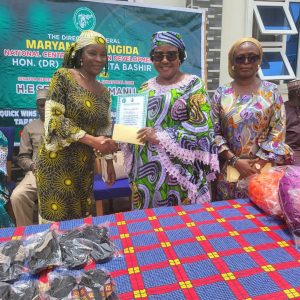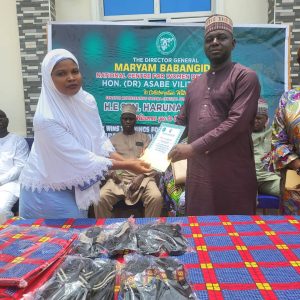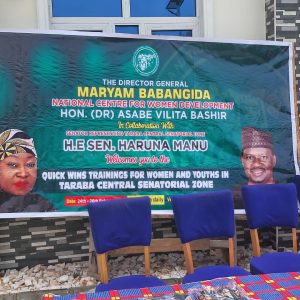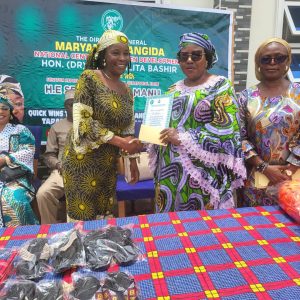News
20 Insights Into Oronsaye Report As EFCC, FRSC, Others Set For Merger
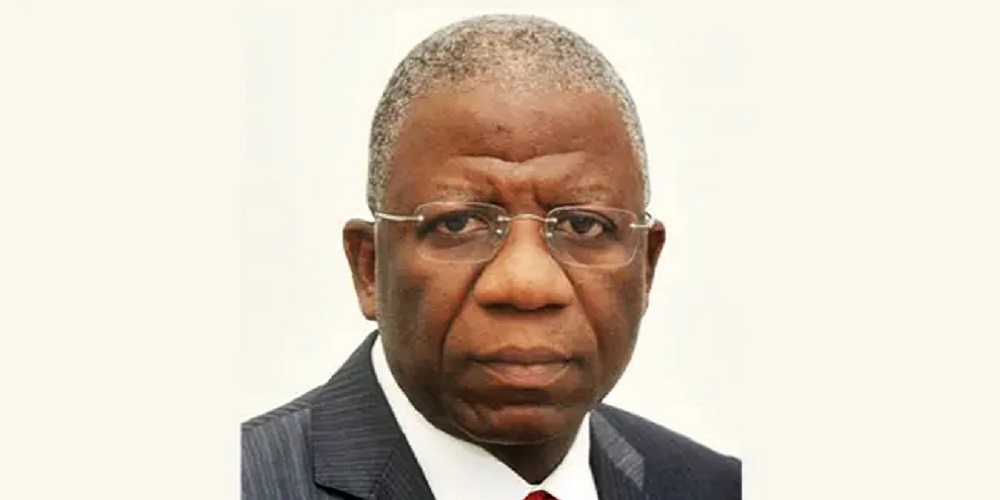
After years of clamour by Nigerians, President Bola Tinubu on Monday ordered the full implementation of the Oronsaye report.
By implementing the report, several agencies of the government would be merged, subsumed, scrapped, and relocated.
The Minister of Information and National Orientation, Mohammed Idris, revealed this to State House correspondents after Monday’s Federal Executive Council meeting at the Aso Rock Villa, Abuja.
Here are things to know about the report
– President Goodluck Jonathan’s administration, in 2012, set up the Presidential Committee on the Rationalisation and Restructuring of Federal Government Parastatals, Commissions and Agencies.
– The committee was headed by a retired federal civil servant and former Head of Service of the Federation, Stephen Oronsaye.
– After their painstaking assignment, the committee recommended the scrapping and merging of 220 out of the then existing 541 government agencies.
– If implemented, no fewer than 102 heads of agencies and parastatals will lose their jobs.
– The committee’s 800-page report noted that the government’s parastatals and agencies’ functions are overlapping.
– The committee recommended the reduction of statutory agencies from 263 to 161.
– The committee recommended the abolition of 38 agencies, the merger of 52 and the reversion of 14 to departments in ministries.
– The committee also recommended the management audit of 89 agencies capturing biometric features of staff as well as the discontinuation of government funding of professional bodies/councils.
– Oronsaye said then that if the committee’s recommendation was implemented, the government would be saving over N862 billion between 2012 and 2015.
– The breakdown showed that about N124.8 billion would be reduced from agencies proposed for abolition; about N100.6 billion from agencies proposed for mergers; about N6.6 billion from professional bodies; N489.9 billion from universities; N50.9 billion from polytechnics; N32.3 billion from colleges of education and N616 million from boards of federal medical centres.
– If implemented, agencies that may be affected include the Economic and Financial Crimes Commission, Independent Corrupt Practices and Other Related Offences Commission, and Federal Road Safety Commission.
– Other agencies cited doing overlapping functions are the Nigerian Communication Satellite Limited, the National Broadcasting Commission and the Nigeria Communications Commission in the area of frequency allocation.
– Also, the Universal Basic Education Commission, Nomadic Education Commission, and National Mass Literacy Commission are performing overlapping functions and should be brought under one body.
– The committee again believes NTA, FRCN, and VON should be under one management.
– After the committee’s report, the White paper committee set up by Jonathan’s administration rejected most of the recommendations, while those accepted were not implemented.
– In November 2021, the Federal Government inaugurated two committees; one of the committees was to review the Orosanye report and its white paper chaired by Goni Aji, a retired Head of the Civil Service of the Federation.
– The second committee was constituted to review agencies created from 2014 till date, chaired by Amal Pepple, also a retired Head of the Civil Service of the Federation.
– Upon submission of their reports, the Federal Government in July 2022 set up another committee chaired by Ebele Okeke, a former Head of the Civil Service of the Federation to produce a white paper on the reports.
– Speaking during the presentation of the white paper to the former Secretary to the Government of the Federation, Boss Mustapha, in Abuja, Okeke stressed that it is important to discuss with the leadership of the National Assembly to achieve the desired result, adding that most of the agencies created were products of bills from the National Assembly.
– She said, “The committee observed that the legal framework/enabling Act of some of the PACs did not clearly define structure, management, and oversight. Most of the laws were used by agency, commission and board interchangeably. For instance, where the organisation is defined as a commission, the provisions of the law did not support the structure of a commission. In this regard, the committee recommended a change in status/name, and amendment of the Act/Law.
“The committee observed that most of the agencies created (especially under Education and Health) were Bills that emanated from the National Assembly. It is, therefore, important to engage and dialogue with the National Assembly to generate an understanding to streamline the creation of new PACs.
“It is noteworthy that some of the recommendations can be considered as low-hanging fruits that can be implemented immediately after approval of the white paper.”
News
Pope Francis finally laid to rest

Pope Francis was buried inside his favourite Rome church after a funeral mass in St Peter’s Square, the Vatican said on Saturday.
Francis who died on Monday aged 88, was laid to rest during a 30-minute ceremony which started at 1:00 pm (1100 GMT) at the Santa Maria Maggiore basilica in the Italian capital.
Footage shared by the Holy See showed cardinals marking his wooden and zinc coffin with red wax seals.
Cardinal Kevin Farrell, who as camerlengo is running the Vatican’s day-to-day affairs until a new pope is elected, sprinkled it with holy water after it was lowered into a tomb set inside an alcove.
A reproduction of the pectoral cross worn by Francis during his lifetime hung above it.
Francis had asked that the tomb, located near the altar of Saint Francis, be simple and unadorned, reflecting the humble spirit of his papacy.
The tombstone bears only the inscription “Franciscus” — the pope’s name in Latin.
Its marble is sourced from Liguria, the northwestern Italian region once home to the Argentine pontiff’s Italian ancestors.
Francis, born Jorge Bergoglio, had specified in his will the exact spot he wanted to be buried, in the side nave of the beloved fifth-century AD church.
The pontiff was devoted to the worship of the Virgin Mary and made a point of praying in Santa Maria Maggiore before leaving on trips abroad and upon his return to Rome.
He declared his desire to be entombed there in 2023.
Located in the heart of Rome, the basilica already holds the tombs of seven popes.
But the last one to be buried there was Clement IX in 1669. More recently, popes have usually been buried in St Peter’s Basilica.
One of four papal basilicas in Rome, Santa Maria Maggiore also holds the remains of several other renowned figures, such as the architect and sculptor Gian Lorenzo Bernini, who designed St Peter’s Square and its surrounding columns.
News
Just in: Gunmen invade pro-Wike group in Bayelsa
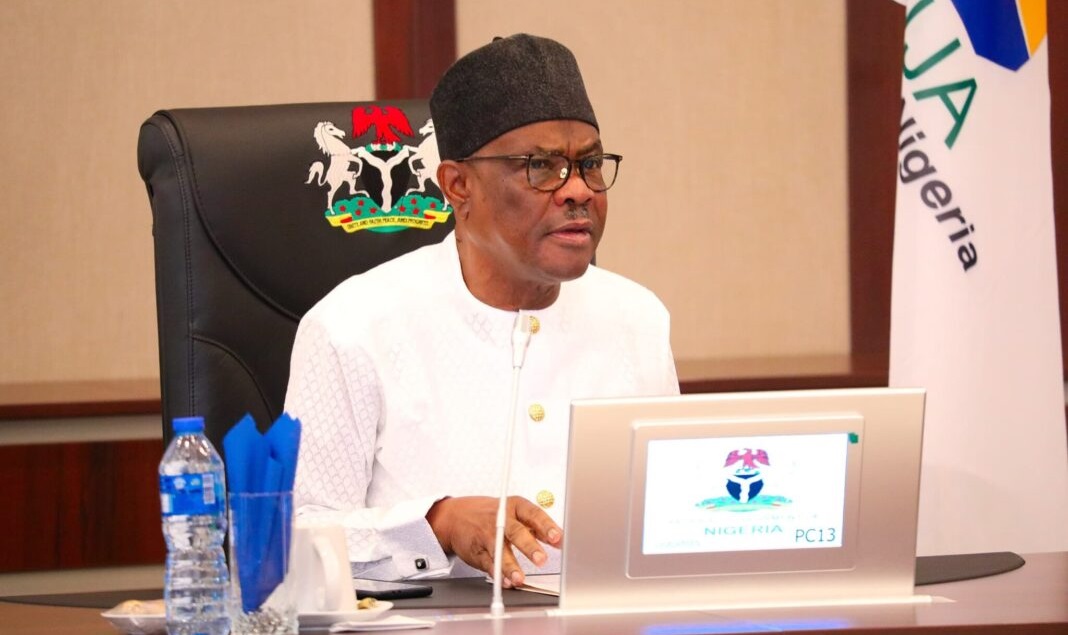
Gunmen suspected to be hired political thugs disrupted a rally organised in support of Minister of the Federal Capital Territory, Nyesom Wike, on Saturday in Yenagoa, Bayelsa State.
The event, which also marked the inauguration of the NEW Associates group, was meant to thank President Bola Tinubu for appointing sons and daughters of Bayelsa into positions in his administration, while also showing support for Wike, who serves as the group’s grand patron.
Originally scheduled for April 12, the rally had been postponed to April 26 after another group, supporters of Governor Douye Diri, booked the same venue and date for their own rally.
Although both groups eventually rescheduled, tensions remained high.
Supporters of NEW Associates had gathered early at the Church of God Mission Camp, ready for the event, when armed men suddenly emerged from nearby creeks and bushes, firing gunshots into the air.
The crowd quickly scattered in fear, while security forces including the Nigeria Police, the Nigeria Security and Civil Defence Corps (NSCDC), and the Department of State Services (DSS) responded by pushing back the attackers and searching the surrounding area to prevent further violence.
After the incident, Comrade Ebilade Ekerefe, Secretary of NEW Associates and former spokesperson of the Ijaw Youths Council, accused the state government of trying to disrupt their peaceful gathering.
He insisted the rally would go on, stating that their intention was simply to express gratitude to the President and show solidarity, and questioned why anyone would feel threatened by such an event.
Similarly, Dr Pabara Igwele, the immediate past Commissioner of Health in Bayelsa, described the rally as peaceful and blamed the disruption on political motives.
He also vowed that the rally would continue despite the attack.
After the initial chaos, supporters regrouped to carry on with the event.
News
Senator Manu Haruna Launches Quick Wins Training for Women and Youths in Taraba Central Senatorial District+Photos
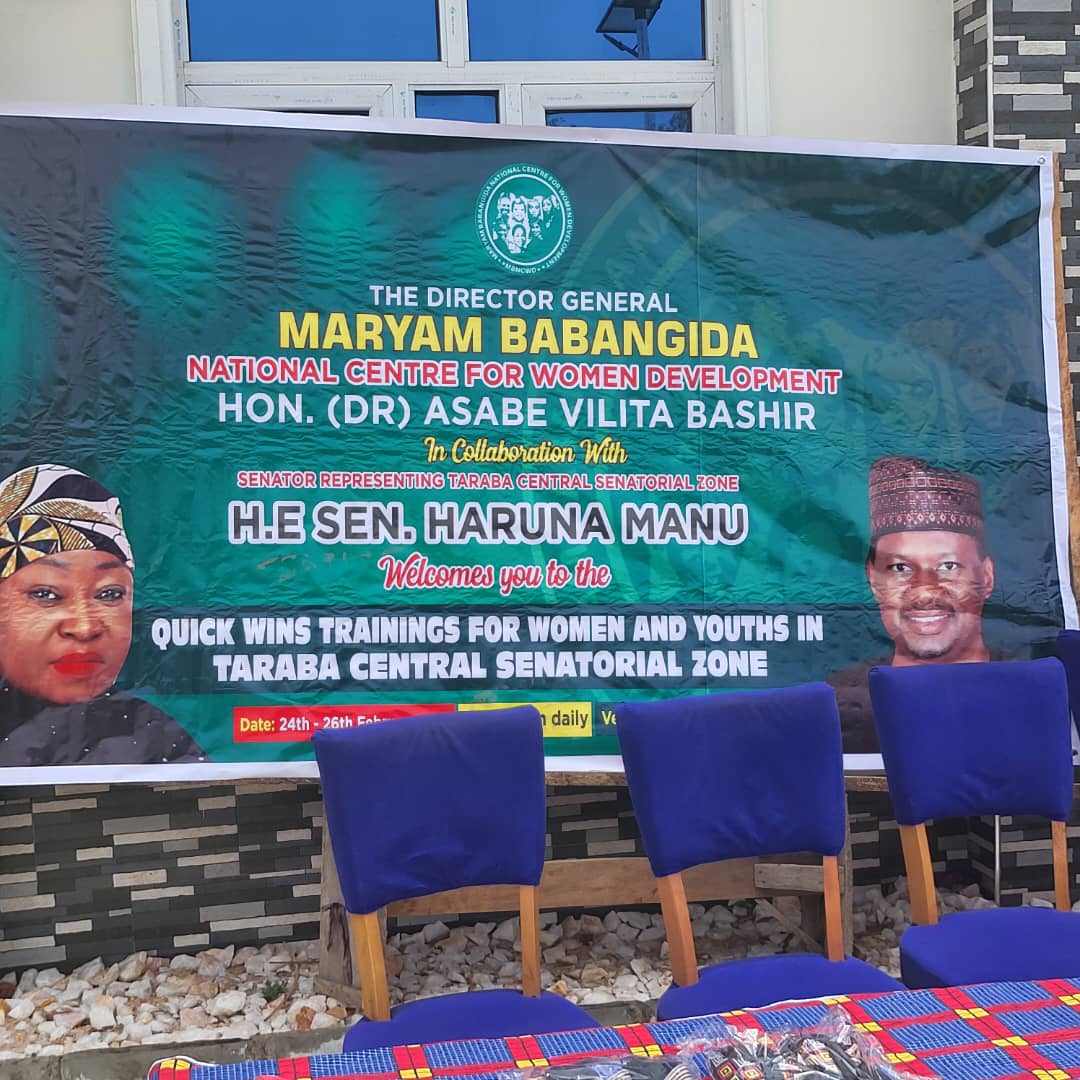
Senator Manu Haruna of the Taraba Central Senatorial District on Saturday concluded a three-day Quick Wins Training program dedicated to empowering women and youths in the District .
The event took place in Jalingo, the capital city of Taraba State, in collaboration with the Maryam Babangida National Centre for Women Development.
The training initiative is aimed to equip participants with practical skills and knowledge that can foster economic independence and stimulate community development. This program is a reflection of Senator Haruna’s commitment to improving the socio-economic status of underrepresented groups within his constituency.
The event was attended by prominent leaders, including Hon. Veronica Alhassan, Member of the House of Assembly for Bali I Constituency, and Hon. Alhassan Hamman, who presented certificates to participants on behalf of Senator Manu Haruna.
The involvement of critical stakeholders underscored the importance of collaboration between government officials and community leaders in driving sustained progress in Taraba Central.
Among the distinguished attendees were Hon. Ubale Gambo, Hon. Bala Baba, Alhaji Muhammad Nagaggo, Alhaji Raubilu Umar, among others, all of whom are dedicated to fostering development within the region.
Senator Manu Haruna expressed his gratitude to the National Centre for Women Development and all partners involved in the initiative.
He stressed the transformative potential of empowering women and youths, noting the necessity for continued support and resources to ensure sustainable growth in Taraba State.
This Quick Wins Training is poised to have a long-lasting impact on participants, equipping them with essential skills to make valuable contributions to their communities and the broader economy of Taraba State. By investing in the future of these underprivileged groups, the program seeks to inspire change and promote self-sufficiency among the local populace.
-
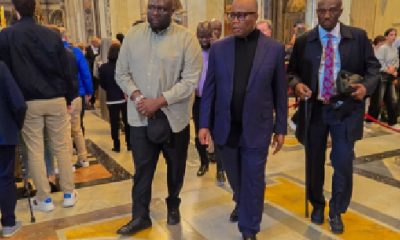
 News18 hours ago
News18 hours agoAkpabio arrives Vatican ahead Pope’s funeral
-
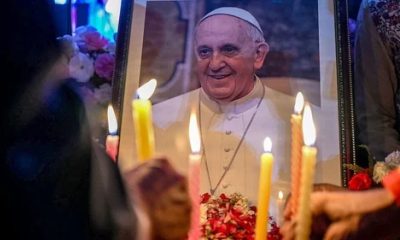
 News11 hours ago
News11 hours agoList of World Leaders that are present in the final funeral of Pope Francis
-

 News7 hours ago
News7 hours agoJust in: Gunmen invade pro-Wike group in Bayelsa
-

 News15 hours ago
News15 hours agoDefections: Teejay Yusuf traces genesis of PDP palaver, key issues affecting Nigeria’s largest opposition party
-

 News12 hours ago
News12 hours ago2Face estranged wife, Annie Macauley breaks silence after he married Natasha
-
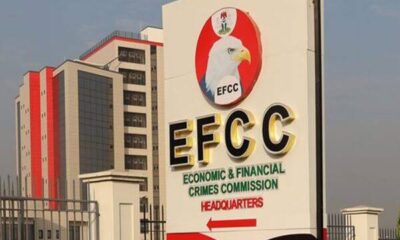
 News17 hours ago
News17 hours agoCBEX: EFCC declares four persons wanted over crypto fraud + photos
-

 News17 hours ago
News17 hours agoScandal! Osun monarch, pastor admit to COVID-19 fraud in US
-
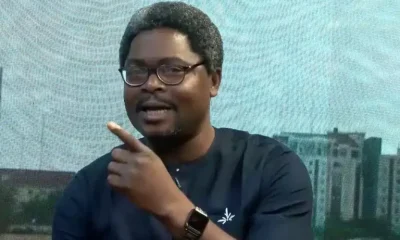
 Politics14 hours ago
Politics14 hours agoUgochinyere remains Nigeria’s number one Hushpuppi of politics-Olayinka carpets Imo Rep


